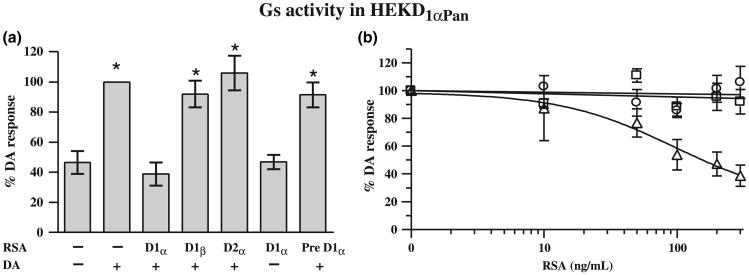Fig. 6.
Only the D1α RSA can uncouple the D1αPan receptor from Gs. (a) The left panel shows the effect of each RSA on D1Pan receptor-G protein coupling. Gs activity was measured in HEK D1αPan membrane preparations in the presence (+) or absence (−) of 10−5mol/L DA and 300 ng/mL of an RSA as indicated under each bar. Data were normalized by G protein activity in the presence of 10−5mol/L DA without RSA, and are plotted as the percent of the response in 10−5mol/L DA without RSA. Pre D1α indicates that the D1α RSA was preabsorbed with its peptide antigen. Asterisks (*) indicate a significant difference from no DA no RSA (p < 0.05). Data represent the mean ± SEM, n ≥ 3. (b) The right panel shows the dose-dependency of RSA uncoupling. Gs activity was measured in HEK D1αPan membrane preparations in the presence of 10−5mol/L DA and increasing concentrations of an RSA (D1α, open triangles; D1β, open squares, D2α open circles). Data represent the mean ± SEM, n ≥ 3.

